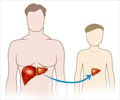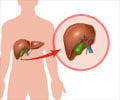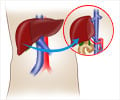Through gene therapy, the corrected liver cells were transplanted into the diseased liver of pigs with HT1, resulting in enzyme production.

‘A newly developed gene therapy has resulted in the improvement of pigs with Hereditary tyrosinemia type 1 (HT1) and the prevention of liver failure.’





The medical research study tested gene therapy in pigs suffering from HT1. Raymond Hickey, a Mayo surgical researcher, said, "Using this novel approach to treat HT1 and other metabolic diseases will allow patients to avoid a liver transplant and save more lives." Through gene therapy, the corrected liver cells are transplanted into the diseased liver, resulting in enzyme production. "This treatment is a new form of cell transplantation that utilizes the patient's own cells, so it does not require immunosuppressive drugs and, thus, avoids the side effects of those drugs," says Scott Nyberg, a liver transplant surgeon at Mayo Clinic.
This therapy resulted in the improvement of pigs with HT1 and the prevention of liver failure. The use of nuclear imaging enables the researchers to monitor expansion of the corrected cells through a noninvasive imaging process.
"Pediatric patients suffering from inborn errors of metabolism of the liver will benefit most from this therapy," says Dr. Hickey. "More than one-fifth of all pediatric liver transplants are a result of metabolic disease."
The study also examines the use of lentiviral vectors for cell delivery in treating liver diseases, a tool traditionally used in treating blood disorders.
Advertisement















